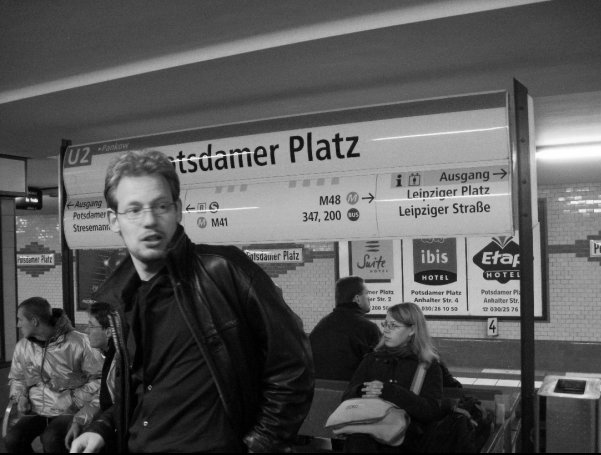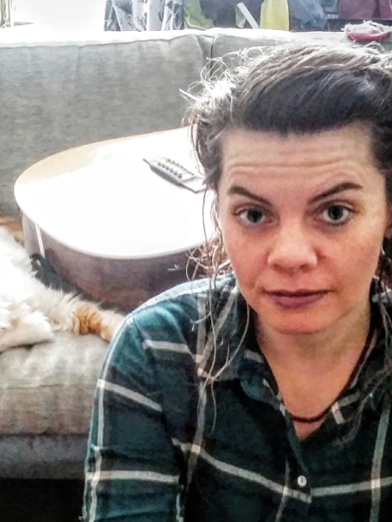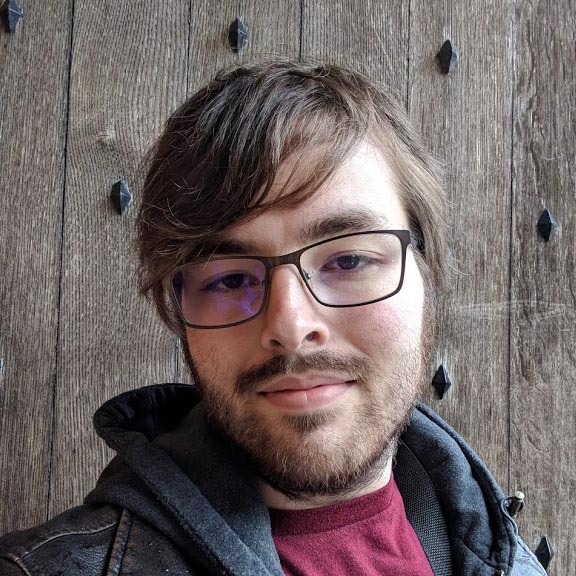


 |
 |
 |
Rogier Mars
Principal Investigator
 Rogier obtained his PhD (highest honors) from the Donders Centre of the Radboud University in 2006 with a thesis on the contributions of human premotor cortex to action.
He then moved to University College London to work with Sven Bestmann on computational models to analyze EEG and TMS data.
Since 2007 Rogier has been working at the University of Oxford, first as a Marie Curie Intra-European Fellow with Matthew Rushworth and more recently as an independent PI.
Rogier obtained his PhD (highest honors) from the Donders Centre of the Radboud University in 2006 with a thesis on the contributions of human premotor cortex to action.
He then moved to University College London to work with Sven Bestmann on computational models to analyze EEG and TMS data.
Since 2007 Rogier has been working at the University of Oxford, first as a Marie Curie Intra-European Fellow with Matthew Rushworth and more recently as an independent PI.
Rogier currently holds positions at both the University of Oxford as Associate Professor and the Radboud University Nijmegen as Principal Investigator. He leads the Cognitive Neuroecology Lab that undertakes a large research program on understanding brain diversity. They combine approaches from comparative and cognitive neuroscience to understand how the brains of different species are adapted to suit their ecological niches. The human brain, of course, receives special attention in this endeavor.
The lab's work is currently funded by generous contributions of the BBSRC and Wellcome Trust.
Katherine Bryant
Post-doctoral Fellow

"My work focuses on evolutionary neuroanatomy using diffusion tractography to compare the cortico-cortical connectivity of association areas in humans, chimpanzees, and macaques.
"In 2017, I joined the lab in Nijmegen on a Marie Curie Fellowship to examine the comparative connectivity of the temporal lobe in greater detail in order to identify putative novel cortical areas in the human lineage.
"Currently, I am based in Oxford. As part of my continuing work to map out great ape brain evolution, we have just produced the first chimpanzee brain atlas and are currently working on quantitative comparisons of brain organization across ape species."
Guilherme Blazquez Freches
PhD student
 Guilherme is a PhD student in the Language in Interaction Consortium working at the Neuroecology and the Statistical Imaging Neuroscience Labs of the Donders Institute for Brain, Cognition and Behaviour.
Guilherme is a PhD student in the Language in Interaction Consortium working at the Neuroecology and the Statistical Imaging Neuroscience Labs of the Donders Institute for Brain, Cognition and Behaviour.
He aims to answer the question "What is different about the human brain that allowed us to develop the communication system we know as language?"
After his first year of Master studies, Guilherme did an internship at the Champalimaud Center for the Unknown and, from that moment on, Neuroscience became his passion. He completed his Master thesis supervised by Dr. Noam Shemesh by designing, building and succesfully testing the first auditory fMRI setup for mice.
Guilherme started working in the Neuroecology Lab in 2017.
Magdalena Boch
Visiting PhD student
 Magdalena is a PhD student at the University of Vienna and joined the Neuroecology lab’s Oxford branch in October 2021 for a 6-month research stay. She works with pet dogs and humans conducting a range of comparative task-based and resting state fMRI studies.
Magdalena is a PhD student at the University of Vienna and joined the Neuroecology lab’s Oxford branch in October 2021 for a 6-month research stay. She works with pet dogs and humans conducting a range of comparative task-based and resting state fMRI studies.
Magdalena aims to study convergence in the neural basis of social information processing in the dog and human brain by comparing brain areas for social behaviour. Her current research focuses on two key socio-cognitive skills: the neural underpinnings of face, body and inanimate object perception and action observation.
In the Neuroecology Lab, Magdalena will be working with resting state fMRI data on dogs and humans, with the aim of using a connectivity fingerprint matching approch to understand potential convergent evolution in processing of social signals.
Marius Braunsdorf
PhD student
Marius started in the Neuroecology Lab when he did his MSc research on a project on social sequential evidence accumulation as a part of his research Master in Brain and Cognitive Sciences. My project was supervised by Rogier Mars and Nils Kolling. The question of how we reach decisions for ourself and others forms a substantial part of being a functioning human being and defines us as social animals to a large extent.
"This study of how our brain monitors who possesses which evidence at what time tackles this endeavour in a well controlled experimental environment. Functional imaging of brain function as well as modelling of these processes shed light on how we make decisions in a social context."
Following this project, Marius is currently working on our lab as a PhD sudent, supervised jointly by Rogier and Harold Bekkering.
Jasper Hunt
DPhil student

Though Jasper earned his BSc in philosophy and psychology at the University of Wyoming, his interest in ecological diversity was cemented during a month-long field course in the wilderness of Kenya in the summer of 2019.
Following an MSc in Neuroscience at the University of Oxford, Jasper joined the Neuroecology Lab’s Oxford branch in 2020 for his DPhil. Here, he is able to combine his interest in neuroscience and his fascination with ecological diversity. In the lab, Jasper studies how ecological niche and evolutionary lineage each affect the neural architecture that supports visual processing across Primates. Understanding the interplay between these factors will help us understand principles of brain diversity, with implications for evolutionary biology and translational neuroscience.
Katherine Karadachka
PhD student

"I am interested in the organisational mechanisms of the brain, in particular, the evolutionary adaptations that led to the existence of the human brain as we know it today, especially when compared to its cousins along the evolutionary tree.
"As part of my PhD project in Nijmegen, I aim to work towards unravelling the anatomical, functional, and computational patterns of organisation in the posterior parietal cortex, region vastly expanded in primates and in particular in humans, compared to other species."
Katherine joined the Neuroecology Lab in 2020.
Francesco Poli
PhD student
Francesco is currently doing a Ph.D. at the Donders centre of Radboud University, supervised by Rogier Mars and Sabine Hunnius. He is interested in human intelligence, both from a developmental and evolutionary perspective. Francesco also loves to deconstruct cognitive processes in its core constituents, to understand what are the cognitive mechanisms that underlie complex cognitive abilities.
He tried to deconstruct Theory of Mind (i.e. the ability to infer the mental states of others) during his MSc in cognitive neuroscience at the University of Padova, Italy (in collaboration with the University of St Andrews, Scotland). Now, Francesco aims to shed light on the cognitive mechanisms underlying another construct: intelligence. To do so, he studies infants’ cognitive abilities. The developmental perspective offers the possibility to focus on the building blocks of intelligence while they are still shaping and interacting with each other, and it is thus a fertile ground to disentangle the cognitive mechanisms underlying complex cognitive functions.
For his studies, he mainly employs behavioral and eye-tracking methodologies.
Post-docs
Matthias Schurz, 2019-2020, current working at University of Innsbruck
Colin Reveley, 2018-2019
Sebo Uithol, 2017-2019
Martin Guthrie, 2016-2017, currently working at Wageningen University
Lennart Verhagen, 2015-2017, currently working at Radboud University Nijmegen
Dilene van Campen, 2013-2017, currently working at University of Amsterdam
Egbert Hartstra, 2012-2013, currently working at HAN University of Applied Sciences
PhD/DPhil students
Nicole Eichert, 2017-2020, currently working at Perspectum
Suhas Vijayakumar, 2015-2020, currently working at Harvard University
Davide Folloni, 2015-2020, currently working at Mt Sinai School of Medicine
Franz-Xaver Neubert, 2011-2015, currently working at McKinsey
MSc students (2019 and onwards only)
Chengyang Wang, 2020
Amna Zulfiqar, 2020